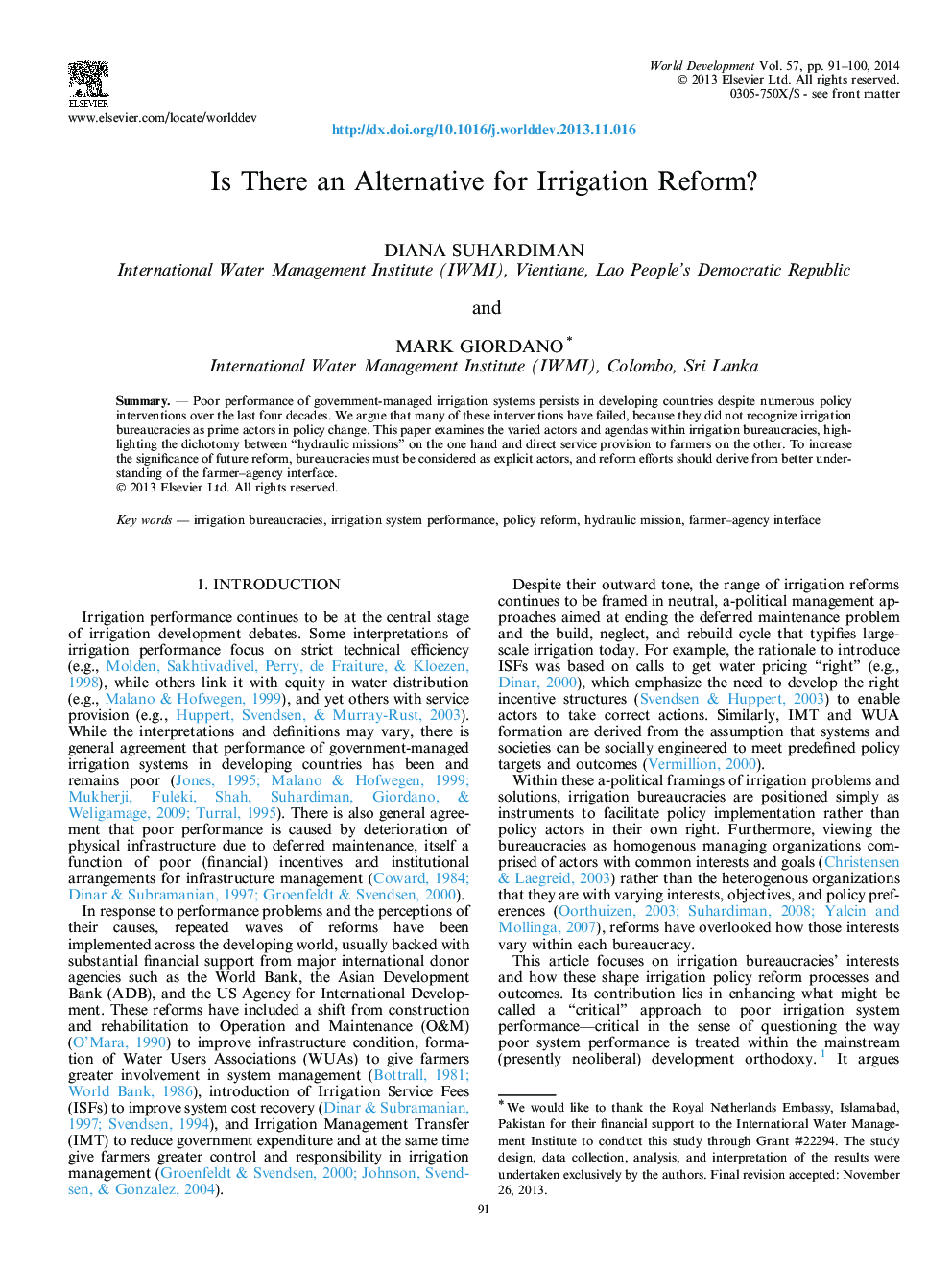| Article ID | Journal | Published Year | Pages | File Type |
|---|---|---|---|---|
| 991740 | World Development | 2014 | 10 Pages |
Abstract
SummaryPoor performance of government-managed irrigation systems persists in developing countries despite numerous policy interventions over the last four decades. We argue that many of these interventions have failed, because they did not recognize irrigation bureaucracies as prime actors in policy change. This paper examines the varied actors and agendas within irrigation bureaucracies, highlighting the dichotomy between “hydraulic missions” on the one hand and direct service provision to farmers on the other. To increase the significance of future reform, bureaucracies must be considered as explicit actors, and reform efforts should derive from better understanding of the farmer–agency interface.
Keywords
Related Topics
Social Sciences and Humanities
Economics, Econometrics and Finance
Economics and Econometrics
Authors
Diana Suhardiman, Mark Giordano,
